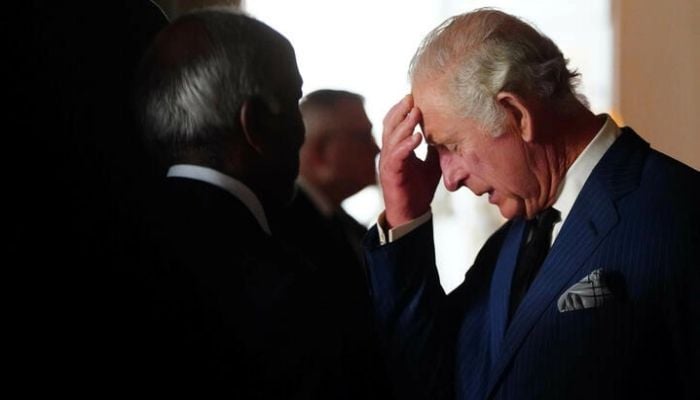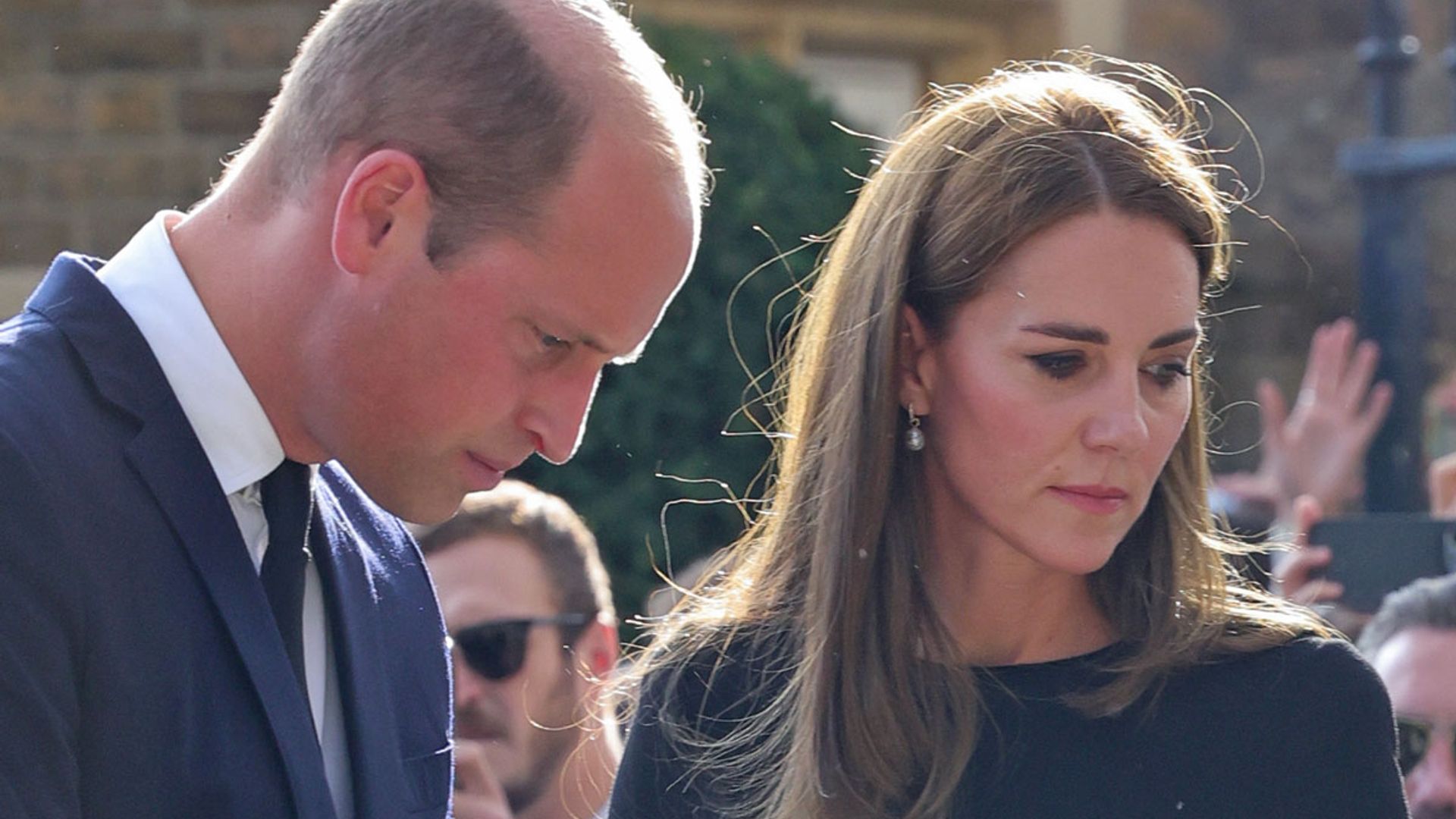For the first time since formally banishing his brother Prince Andrew from royal life, King Charles III has been seen in public — and the images speak louder than any Palace statement.
His Majesty, usually composed and dignified, appeared visibly weary, drawn, and deeply burdened, as if the weight of duty had finally taken its toll.
Witnesses described the King’s expression as “tired and haunted,” a man carrying not only the crown but the heartbreak of having to cast out his own blood.
Even in the crisp autumn air outside Windsor, the King’s steps were heavy, his silence striking.
A Painful Royal Decision

The shock decision to strip Prince Andrew of his titles and expel him from Royal Lodge marked the final, brutal act in a long-running saga that has haunted the monarchy for years.
Charles’s statement was clear, firm, and utterly final — but the emotional cost is written on his face.
Palace insiders say the decision was made after “exhaustive deliberation,” and that the King’s overriding concern was the integrity of the monarchy.
But as one royal source revealed:
“He may be King, but first and foremost, he’s a brother. This has torn him apart.”
Behind the grandeur of Buckingham Palace walls, few can ignore the tragedy — a family broken by scandal, loyalty, and impossible choices.
Kate and William: Standing Firm, Yet Sympathetic

The Prince and Princess of Wales have maintained a quiet but decisive stance throughout the ordeal.
According to sources close to the couple, William fully supported his father’s decision, viewing it as a necessary step to protect the Crown’s reputation at a time of fragile public trust.
However, Kate’s approach has been gentler.
Described by insiders as “the heart of compassion in the Palace,” she is said to have expressed sadness at the situation, privately acknowledging that “no one truly wins when a family falls apart.”
Her quiet empathy, even amid scandal, has reportedly softened tensions behind closed doors — a reminder that the royal family’s humanity still flickers beneath its strict protocol.

Duty or Despair?
Observers are divided over whether the King’s move was a triumph of duty — or a moment of despair.
Some hail it as a “bold act of leadership,” demonstrating Charles’s determination to restore trust in the monarchy after years of controversy.
Others see it as a painful symbol of a dynasty devouring itself, sacrificing family for survival.
For Charles, the question lingers: Was this truly the best choice — or the only one left?
The monarch who once longed for peace in his reign is now confronting a legacy defined by moral reckoning and emotional isolation.
And as he retreats into the quiet halls of Balmoral or Windsor, the haunting thought remains:
You can wear the crown, but you cannot escape the cost.
The Public Mood
Across Britain, reactions are mixed.
Some praise the King’s resolve, saying it marks “a new age of accountability” within the Royal Family.
Others can’t help but feel a pang of sympathy for both men — two brothers divided by scandal, circumstance, and fate.
One royal observer summed it up best:
“In the end, this wasn’t a battle between brothers. It was a battle between love and duty — and duty won.”
A Kingdom Watching
As cameras flash and whispers swirl, one truth feels unavoidable:
King Charles may have secured his monarchy, but he has lost something far more precious — his peace.
And in his eyes, weary and distant, the world can see that even a King is not immune to heartbreak



